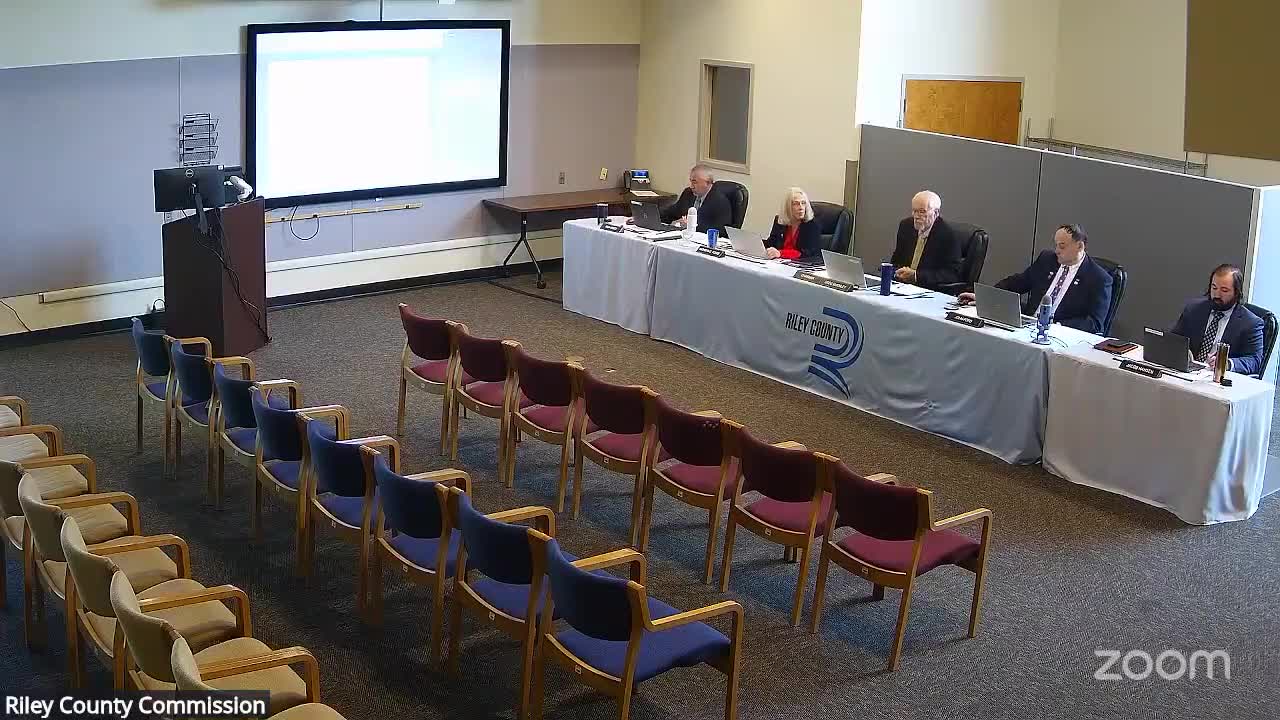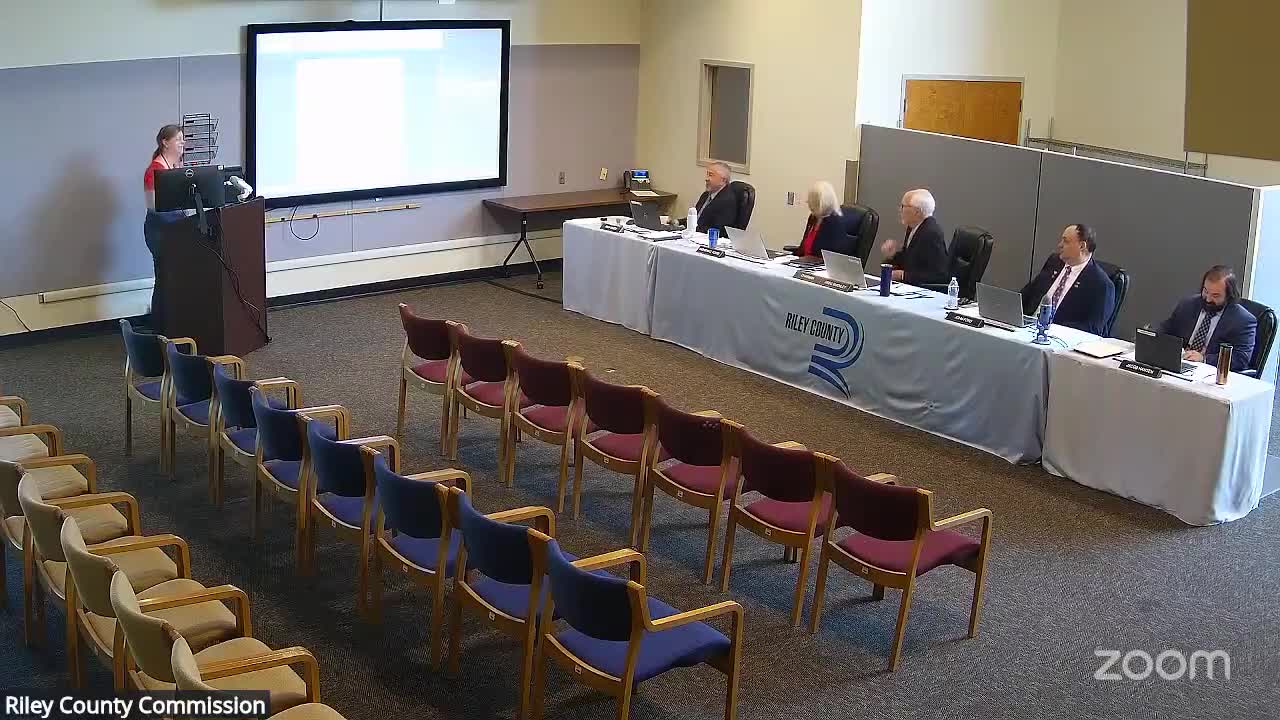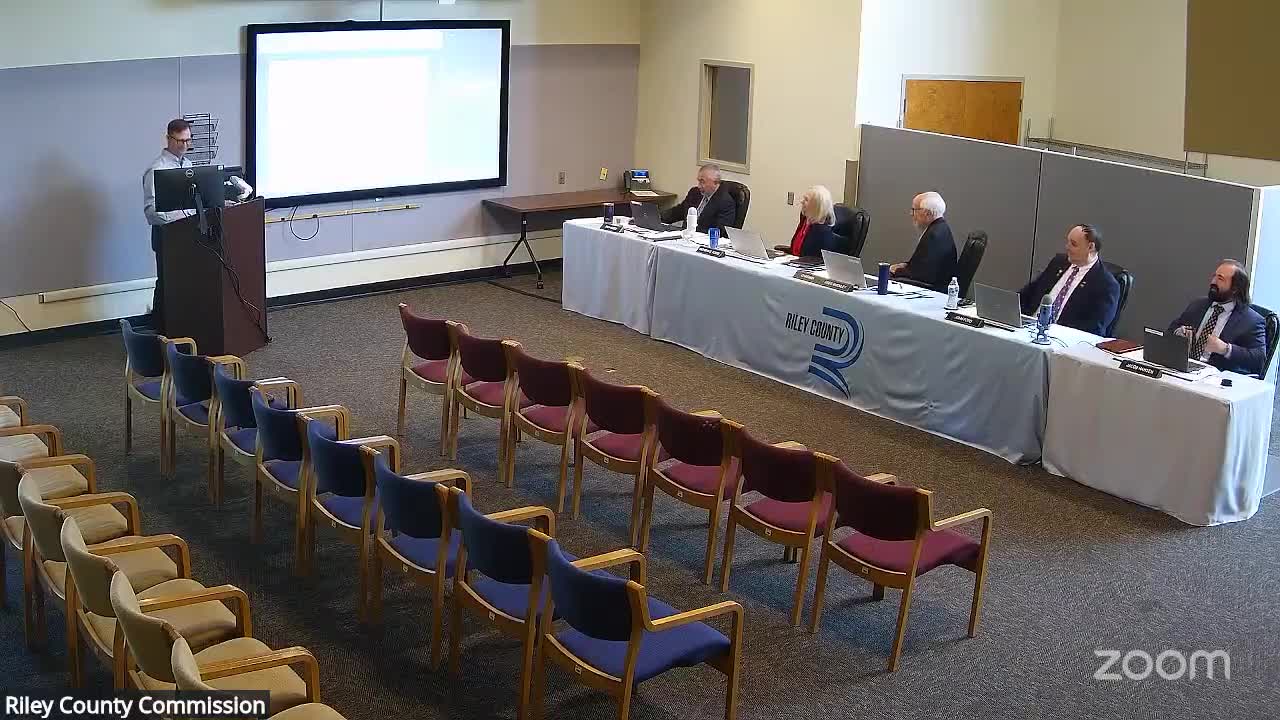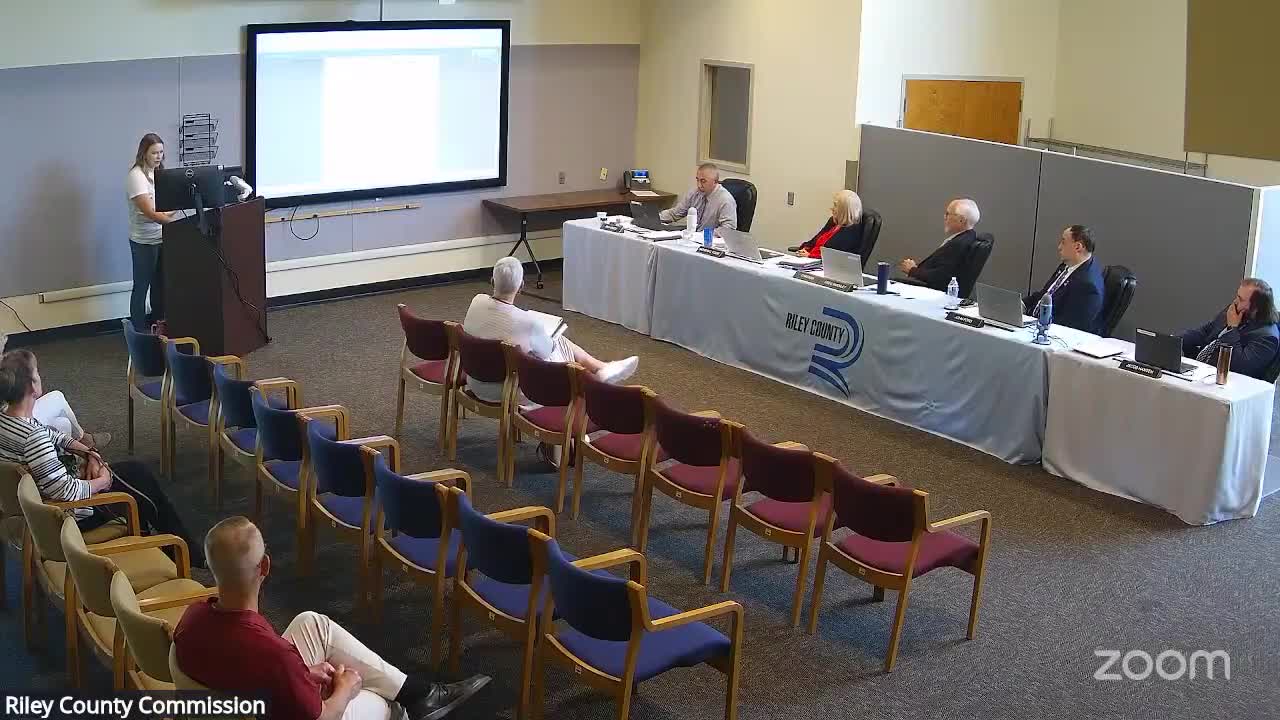Article not found
This article is no longer available. But don't worry—we've gathered other articles that discuss the same topic.

Votes at a glance: commissioners approve advisory‑board appointments, minutes; recess into executive session

Planning staff: easement work continues for ‘Keith’ lagoon project; county schedules Aug. 5 workshop on comprehensive plan

Riley County weed program tightens rules for discounted herbicide sales; sets HHW and paint collection dates

